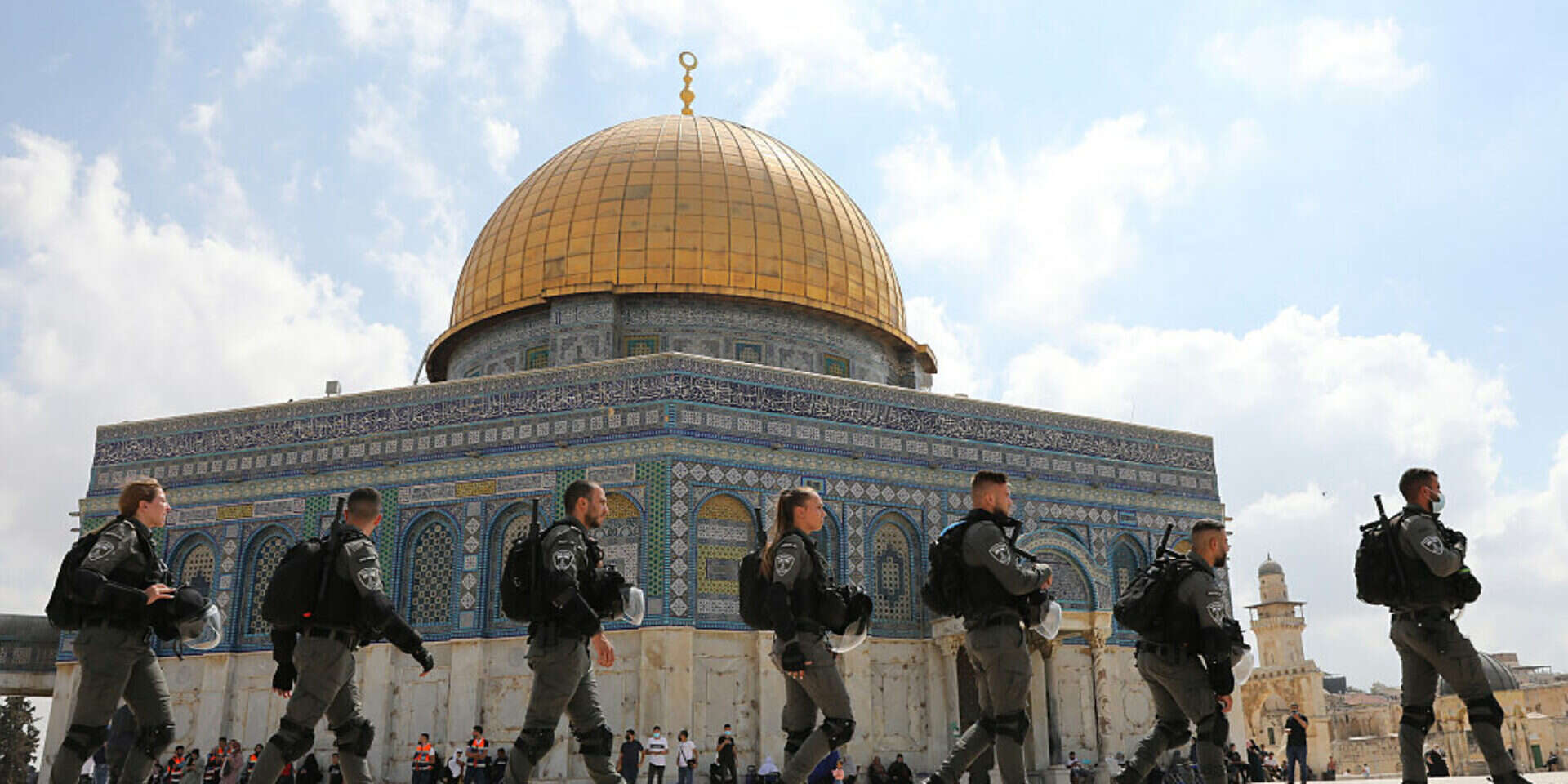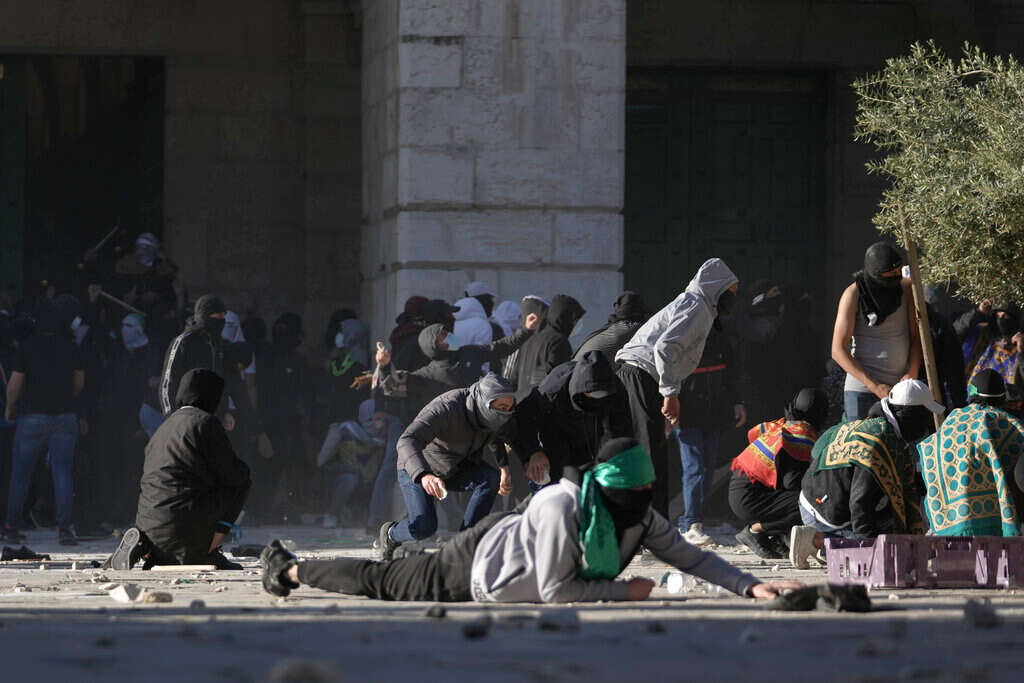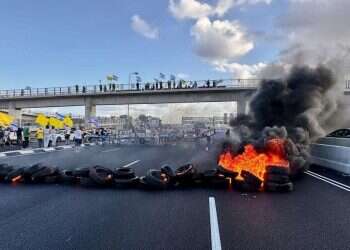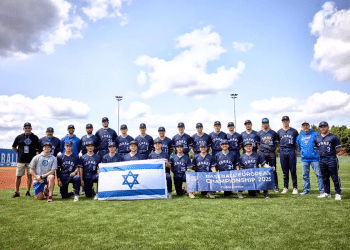Security tensions in recent weeks hit a new high on Friday, the second Friday of Ramadan 2022 and the eve of Passover. By mid-morning Friday, some 300 Palestinian rioters had been arrested.
Follow Israel Hayom on Facebook, Twitter, and Instagram
Israeli security forces entered Al-Aqsa mosque compound in Jerusalem before dawn as thousands of Palestinians were gathered for prayers during the holy month of Ramadan, setting off clashes that medics said wounded at least 67 Palestinians. Several dozen Palestinians had barricaded themselves in the mosque, and security forces removed them. News sources reported that hundreds of Palestinians have been arrested.
Israel said its forces entered to remove rocks and stones that had been gathered in anticipation of violence. The holy site, which is sacred to Jews and Muslims, has often been the epicenter of Israeli-Palestinian unrest, and tensions were already heightened amid a recent wave of violence.
Videos circulating online showed Palestinians hurling rocks and police firing tear gas and stun grenades on the sprawling esplanade surrounding the mosque. Others showed worshippers barricading themselves inside the mosque itself amid what appeared to be clouds of tear gas.
The Palestinian Red Crescent emergency service said it evacuated 67 people to hospitals who had been wounded by rubber-coated bullets or stun grenades, or beaten with batons. The endowment said one of the guards at the site was shot in the eye with a rubber bullet.

The Israeli police said three officers were wounded from "massive stone-throwing," with two evacuated from the scene for treatment.
Early Friday morning, Muslim worshippers began clashing with security forces after several dozen young people marched to the Temple Mount at approximately 4 a.m., waving Hamas and PLO flags. The marchers began amassing piles of wooden planks to disrupt movement.
Some of the worshippers began to riot and throw rocks and fireworks at the forces.

Despite the provocation, security personnel waited until the early morning prayers were over and the worshippers left. Because rocks were being thrown at the Western Wall and the violence was escalating, Jerusalem District police entered the Temple Mount compound and removed the rioters, allowing the rest of the people to leave safely.
A police announcement said: "While many police officers are working to allow freedom of worship and maintain security, law, and order at holy places and throughout Jerusalem, there are some who opt to riot and disturb the peace. We will continue to take strong steps against those who disturb the peace, for the peace and safety of the public."
Some 3,000 police, Border Police, and member of other branches of the security forces were on duty in Jerusalem on Friday.
Due to intelligence about terrorist plots, with Jerusalem and Judea and Samaria being the main targets, police were at the highest level of alert, and operations to locate and arrest suspected terrorists continued nationwide.
On Friday, streets around the Old City of Jerusalem will be closed from 6 a.m. to approximately 4:30 p.m. Other roads in Jerusalem will be closed to traffic as necessary.

Palestinian Authority President Mahmoud Abbas spoke with officials, including from the US and Jordan, about the Temple Mount clashes, and warned of the consequences of "Israel's actions," Ahmad Rawidi, head of the Jerusalem unit in the Palestinian presidency, said.
Rawidi blamed Israel for the violence and accused it of disrespecting the Jordanian custodianship.
Jordan's Foreign Ministry condemned "the invasion of the Al-Aqsa Mosque and the Temple Mount" and the "harming of worshippers," and demanded Israel withdraw its forces from the compound "immediately."
Meanwhile, the IDF reported that in light of security tensions, Defense Minister Benny Gantz had ordered a full closure on Judea and Samaria. Crossings will be closed from 4 p.m. Friday until midnight between Saturday, April 16 and Sunday, April 17. On Saturday evening, the security apparatus will hold another meeting to assess the situation, and decide whether or not to keep the closure in place throughout the week of Passover.
Subscribe to Israel Hayom's daily newsletter and never miss our top stories!




